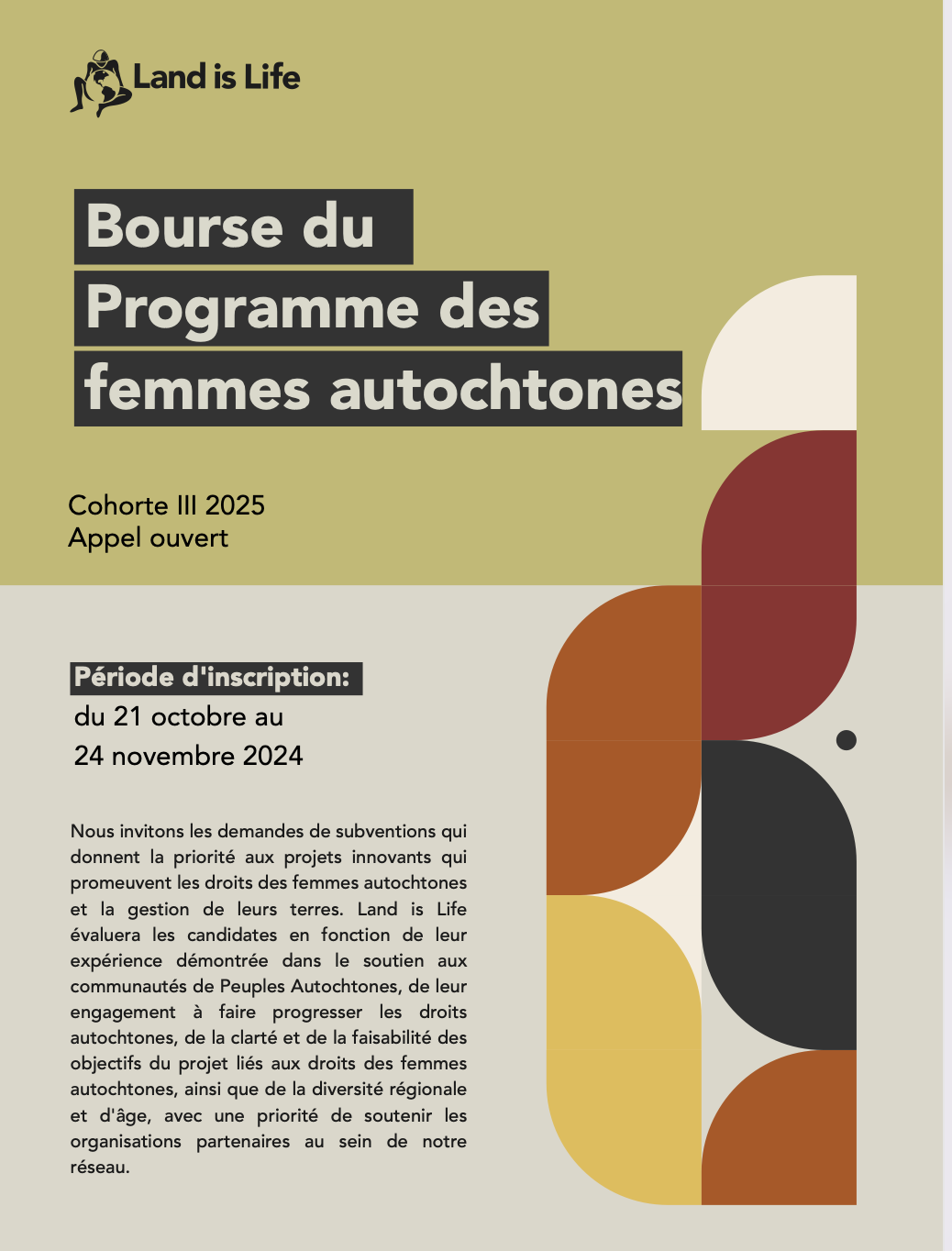
Dans le cadre du Programme des femmes autochtones, la bourse d'un an aide à nourrir la prochaine génération de femmes autochtones leaders en soutenant les femmes autochtones qui prennent des mesures innovantes qui contribuent à l'égalité des sexes, au bien-être de leurs communautés et à la reconnaissance de leurs droits à la terre et aux ressources.
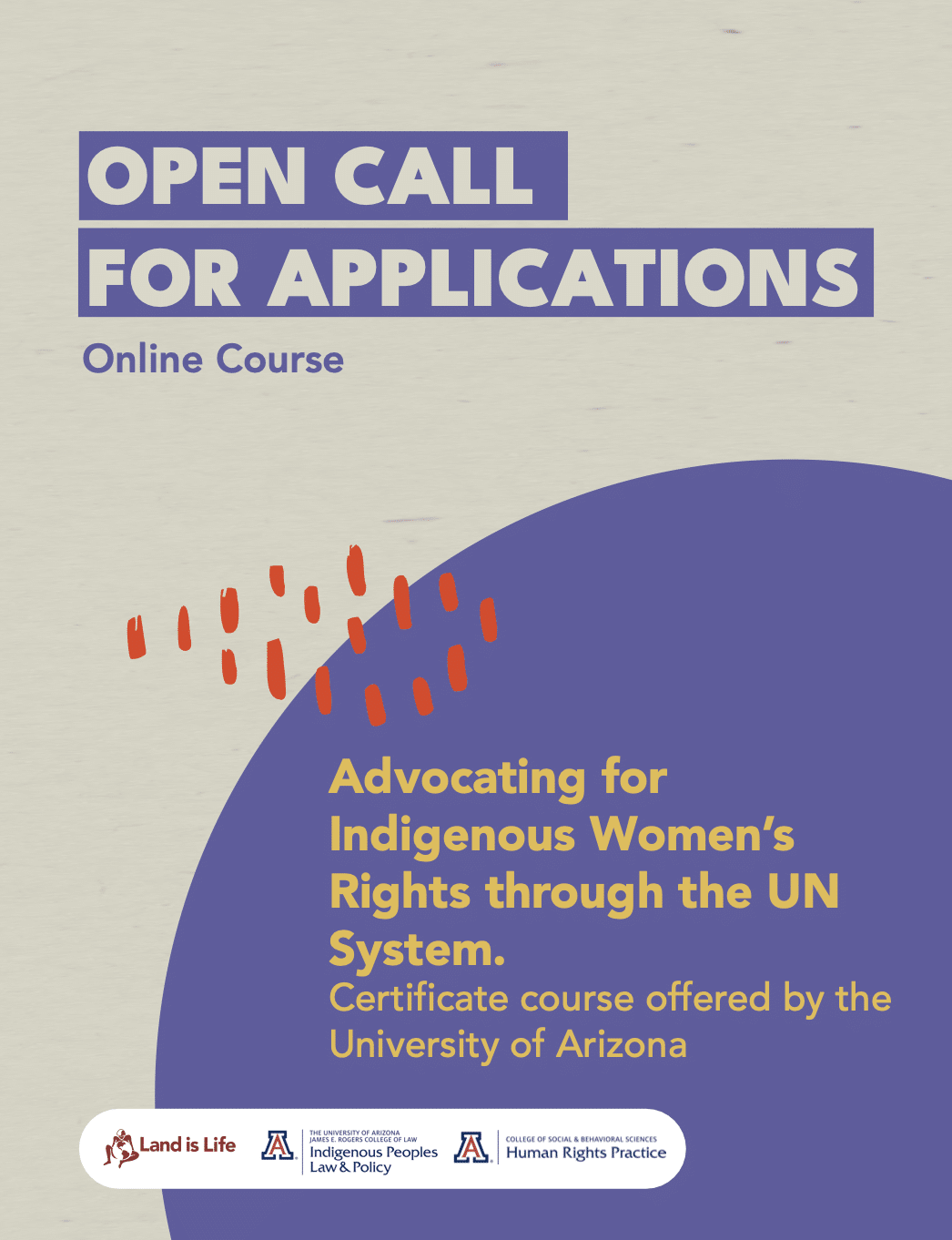
Online course developed in collaboration between Land is Life and the University of Arizona, this course provides a learning opportunity for Indigenous women from across the seven socio-cultural regions to gain hands-on experience in engaging with and navigating the United Nations’ human rights system. Students will learn from high-level guest speakers, including UN Special Rapporteurs, Indigenous leaders, and distinguished scholars. Know more:
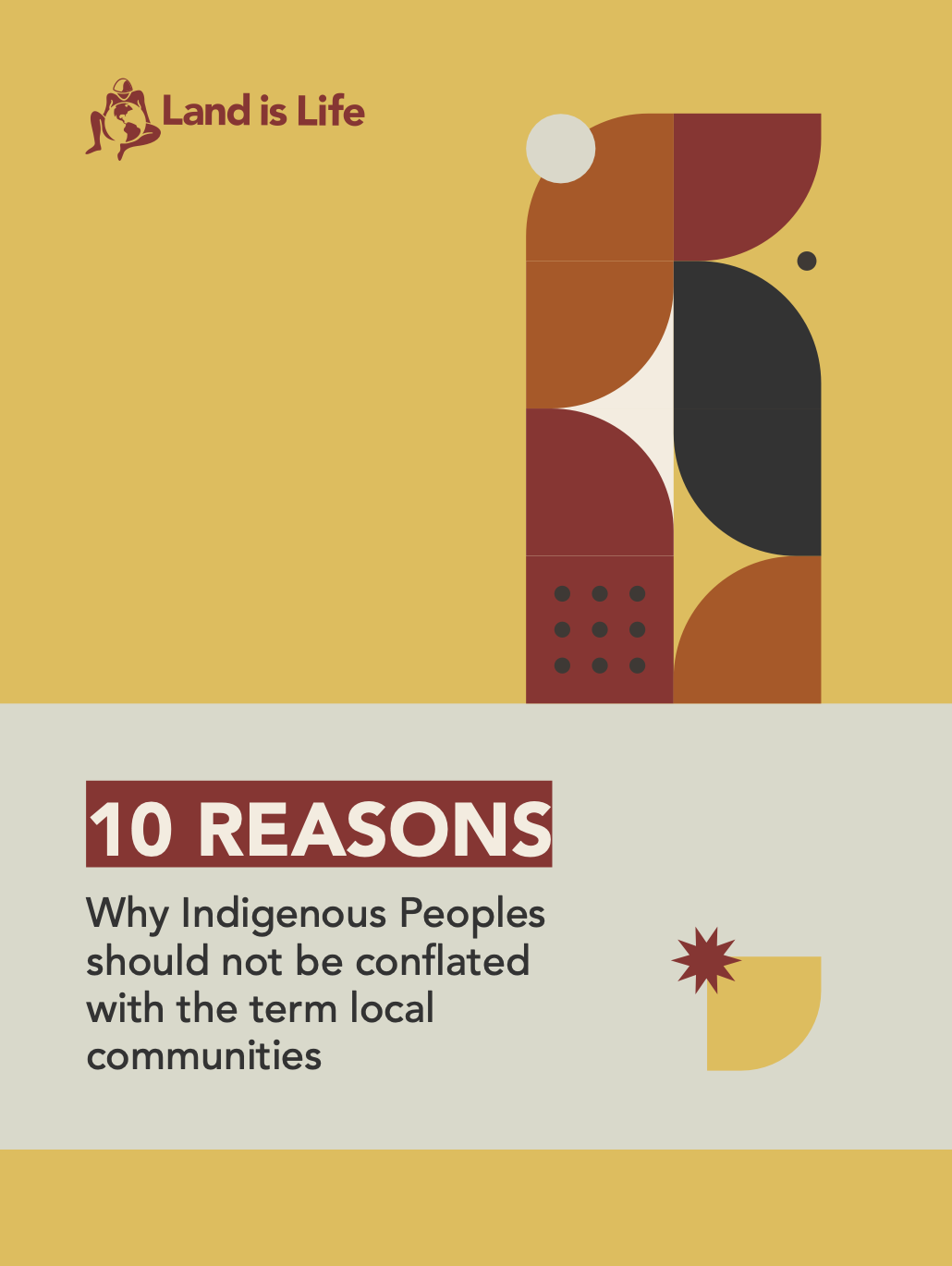
During early discussions about drafting a UN Declaration on the Rights of Indigenous Peoples, the UN Working Group on Indigenous Populations helped states understand why the term "Peoples" was more appropriate than "populations," "tribals," or "peasants."
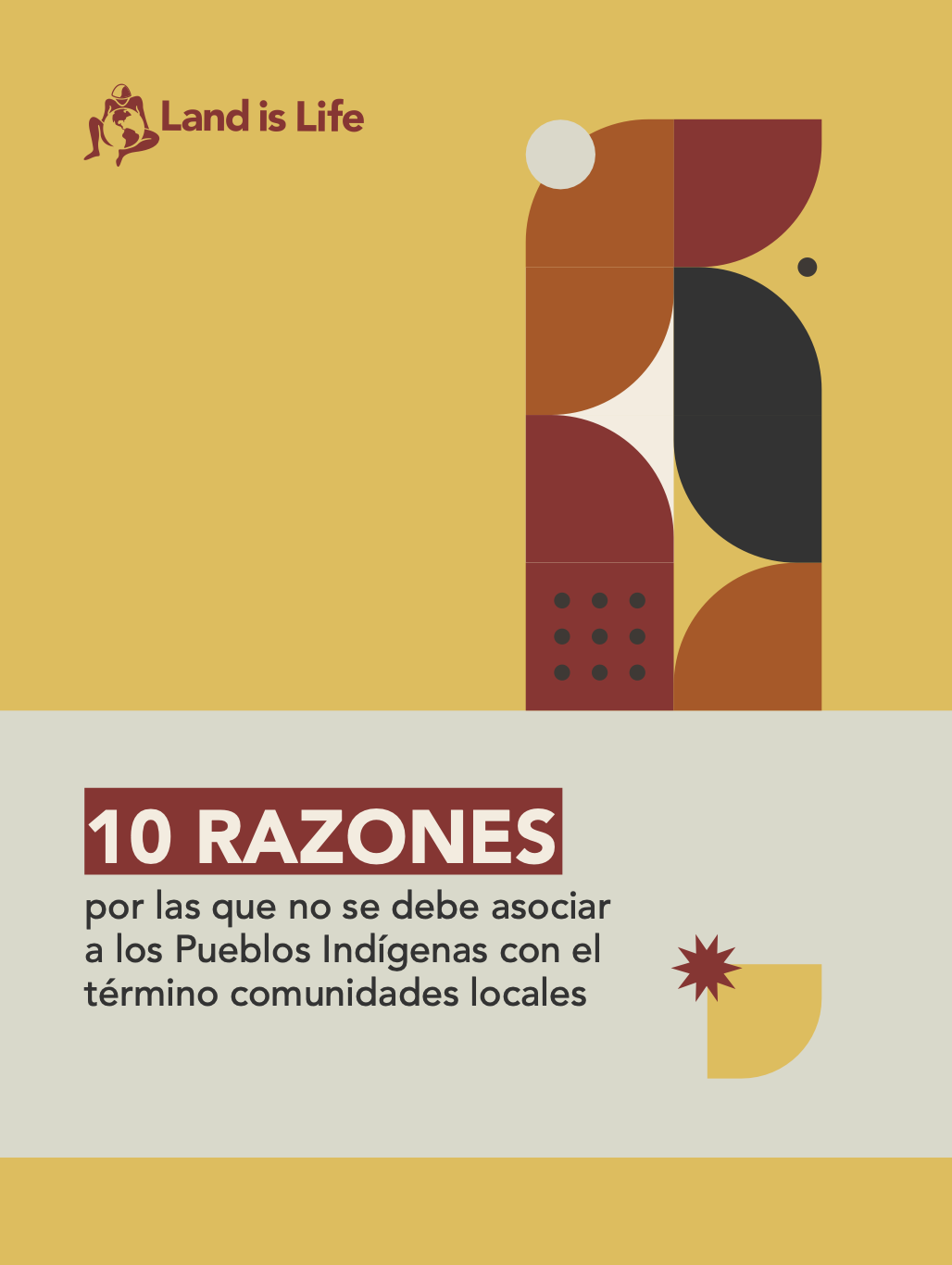
Durante los primeros debates sobre la redacción de la Declaración de las Naciones Unidas sobre los Derechos de los Pueblos Indígenas, el Grupo de Trabajo de las Naciones Unidas sobre Poblaciones Indígenas ayudó a los Estados a comprender por qué el término “Pueblos” era más apropiado que “poblaciones”, “tribus” o “campesinos”.
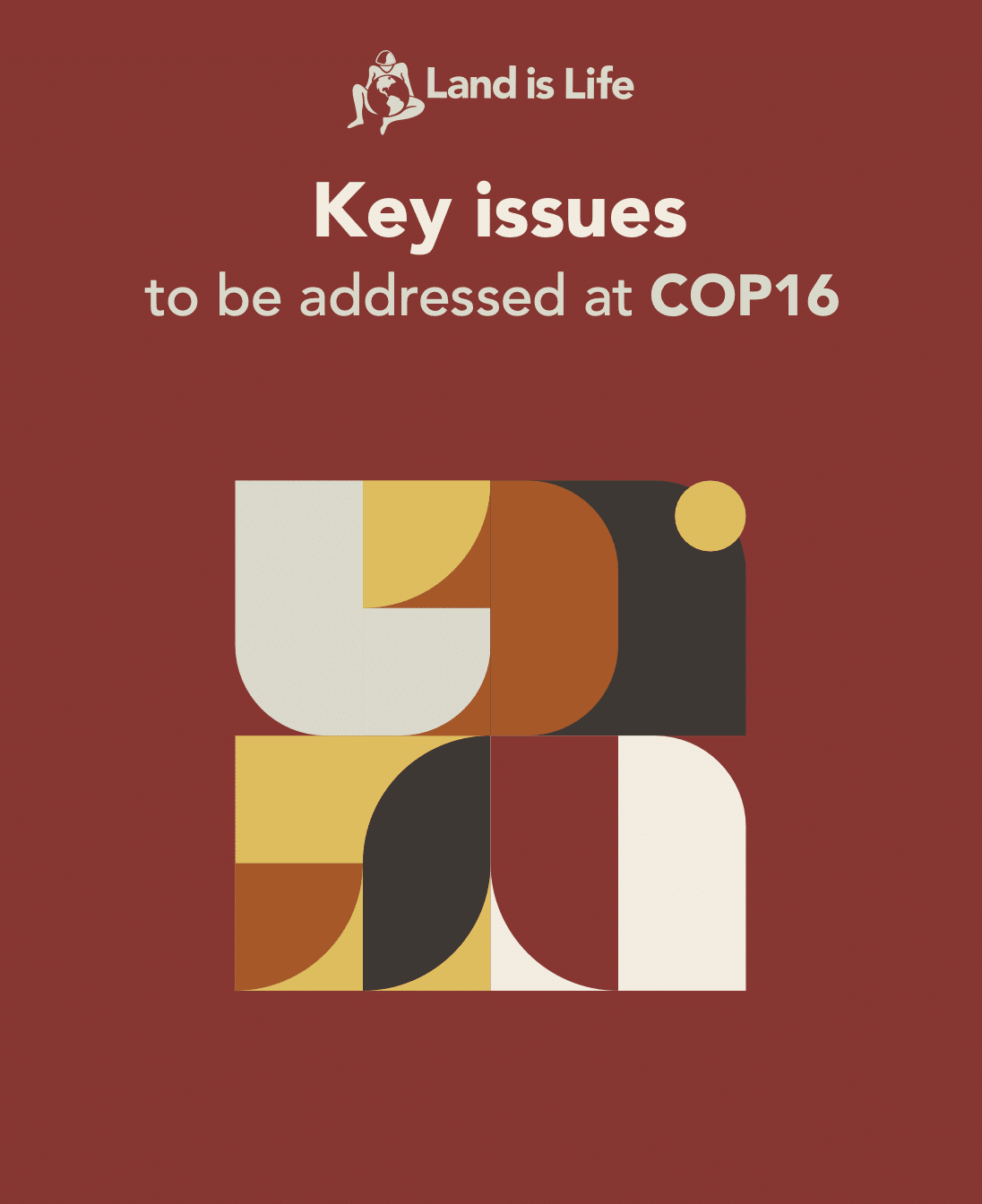
This document is the result of five webinars that represented an opportunity to build the capacity and knowledge of Indigenous women and youth for their participation in COP16 taking place from October 21st to November 1st, 2024 in Cali, Colombia, discussing the main agenda items and the role of Indigenous Peoples in the upcoming negotiations:
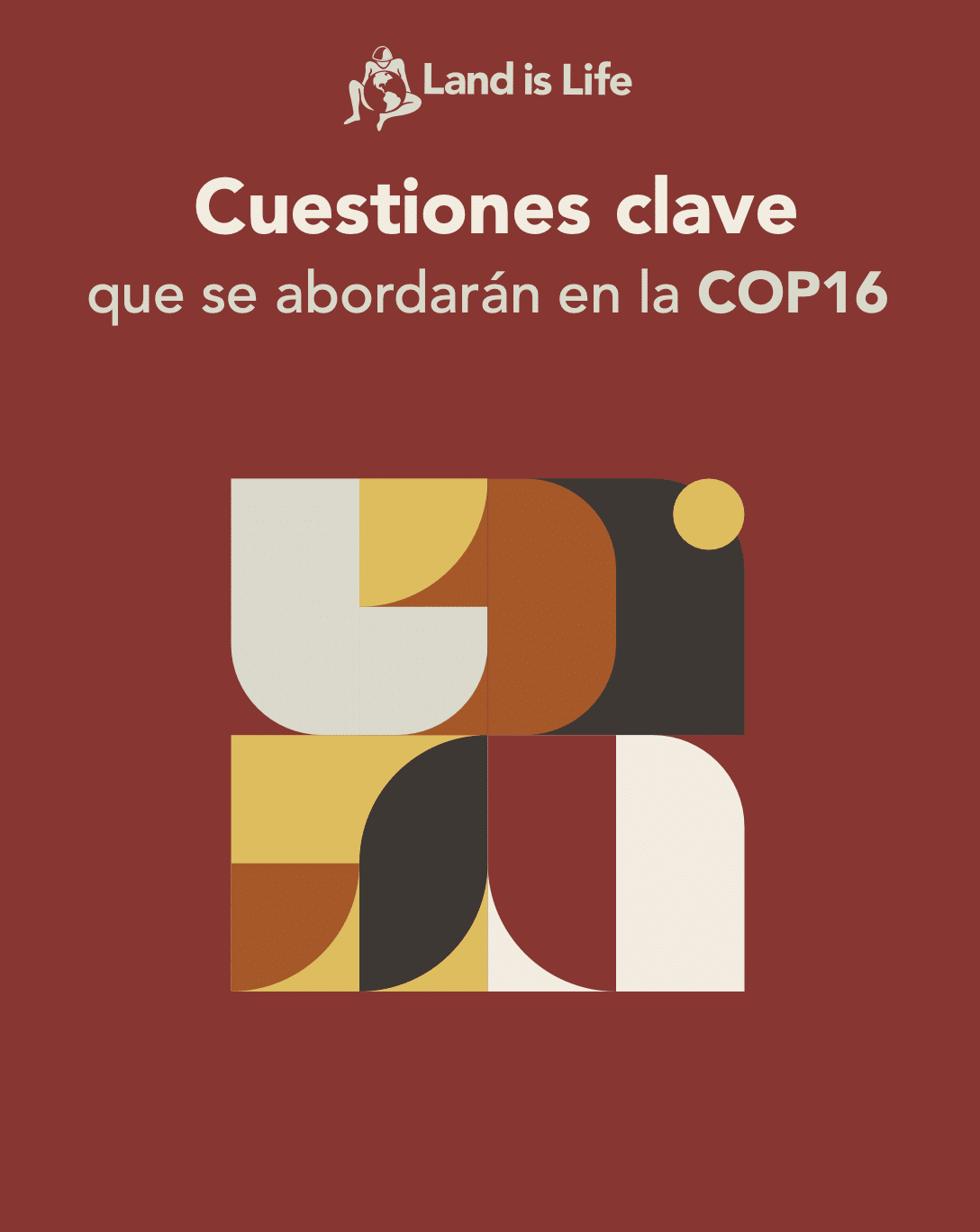
Este documento es el resultado de cinco seminarios web que representaron una oportunidad para desarrollar la capacidad y los conocimientos de las mujeres y jóvenes Indígenas para su participación en la COP16 que tendrá lugar del 21 de octubre al 1 de noviembre de 2024 en Cali, Colombia. Estos son los temas a discutir y el papel de los pueblos indígenas en las próximas negociaciones:
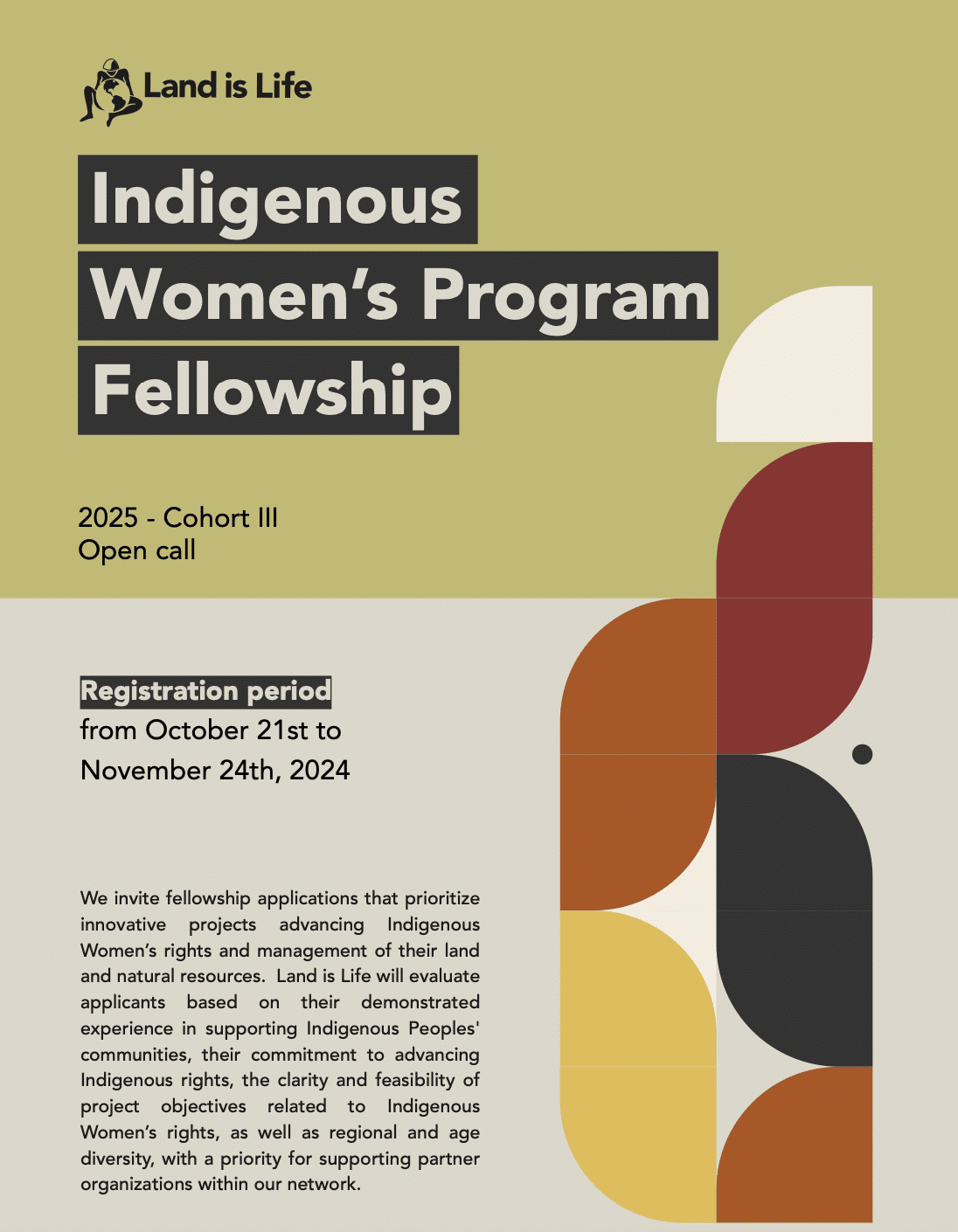
Under the Indigenous Women’s Program, the year-long fellowship helps to nurture the next generation of Indigenous women leaders by supporting Indigenous women who are taking innovative actions that contribute to gender equality, the well-being of their communities, and the recognition of their land and resource rights.

En el marco del Programa de Mujeres Indígenas, la beca de un año de duración ayuda a nutrir a la próxima generación de mujeres líderes Indígenas al apoyar a mujeres Indígenas que están tomando medidas innovadoras que contribuyen a la igualdad de género, el bienestar de sus comunidades y el reconocimiento de sus derechos sobre la tierra y los recursos.
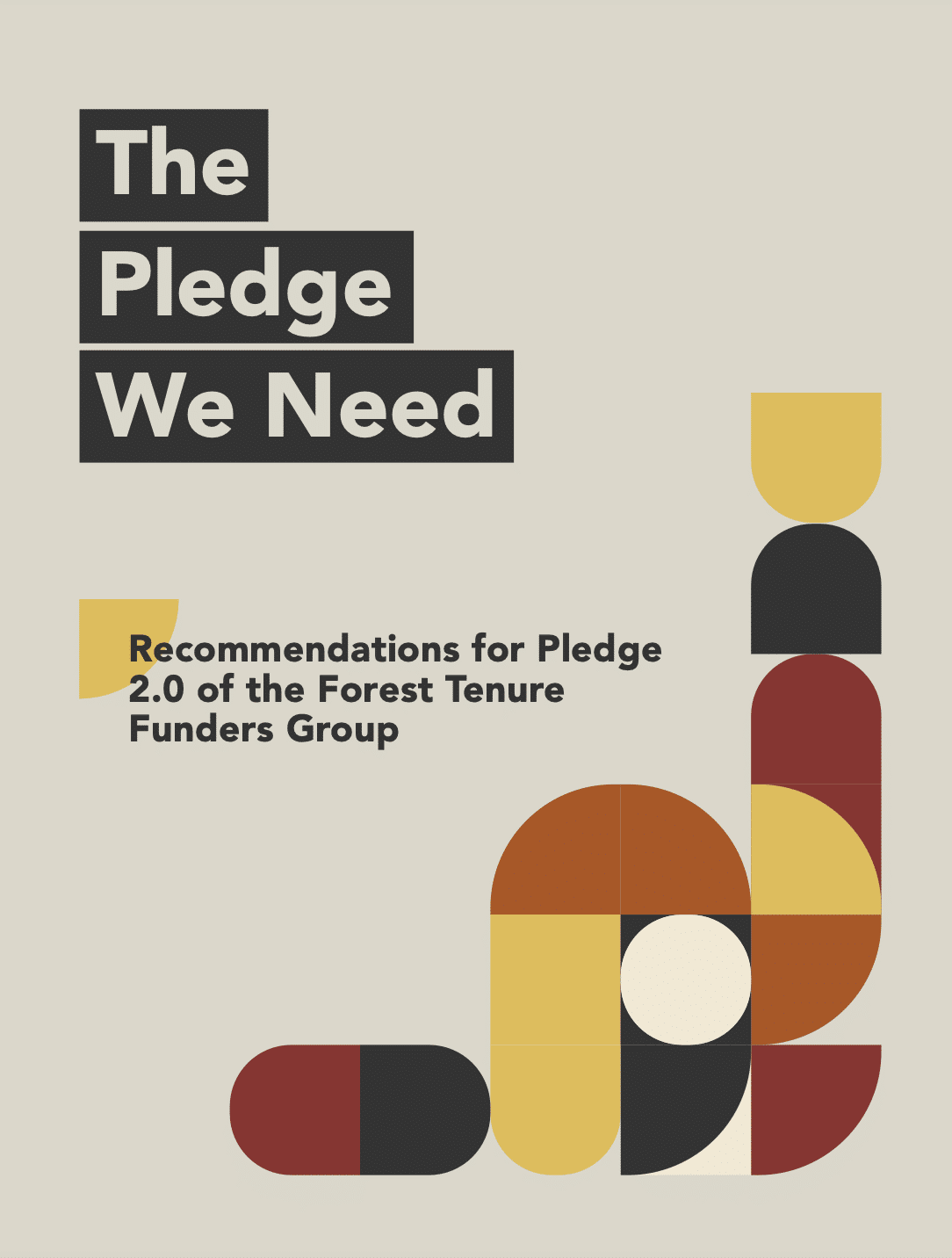
17 funders announced a historic US$1.7 billion Pledge at COP26, in 2021, to advance forest tenure rights in tropical forest countries between 2021-2025. In anticipation of a Pledge 2.0 announcement, a group of 45 Indigenous Peoples’ organizations from Africa, Asia, Latin America, the Arctic and the Pacific provide strategic recommendations and thoughtful insights to inform and strengthen Pledge 2.0 discussions and outcomes. To read full recommendations:
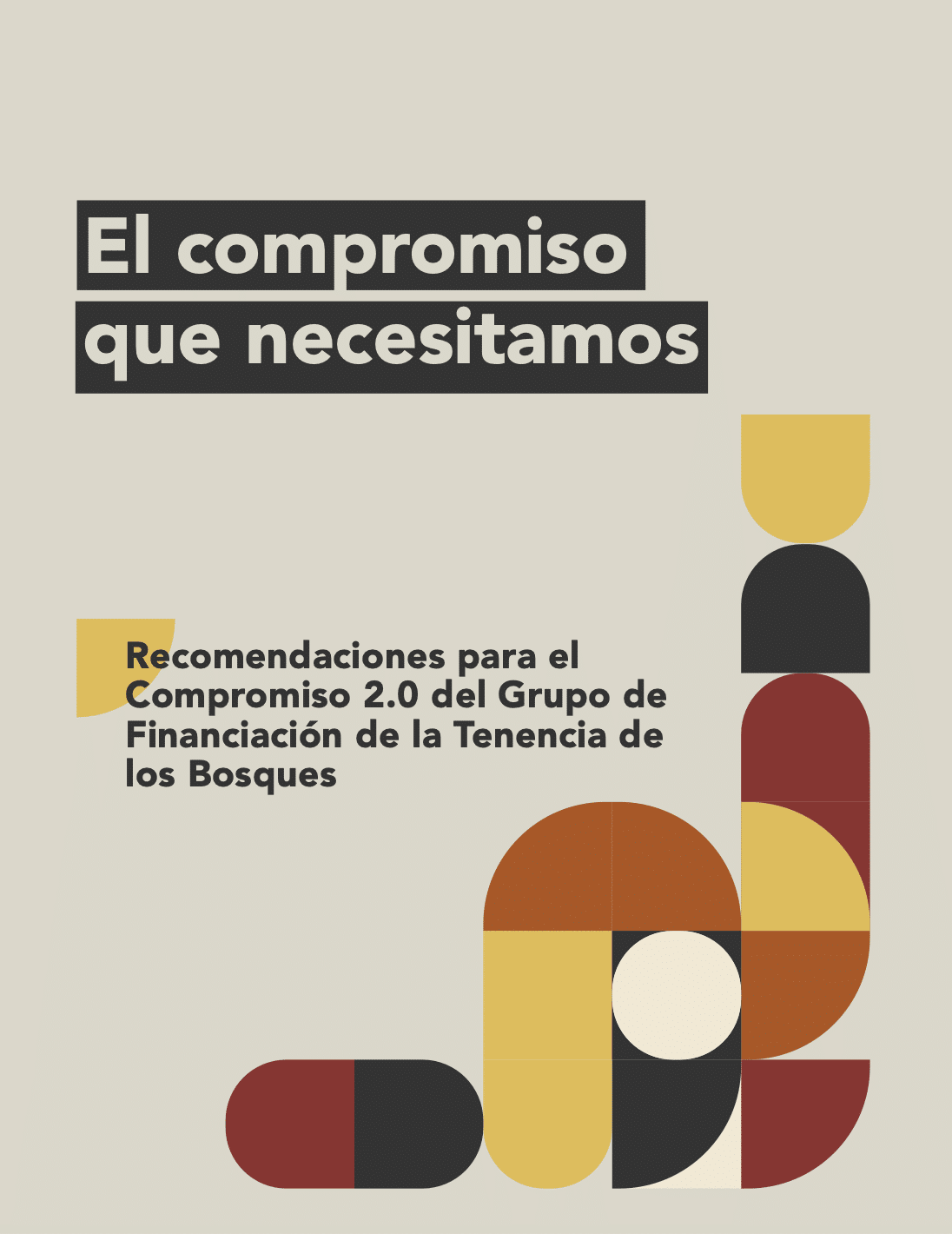
17 financiadores anunciaron un compromiso histórico de US$1.7 mil millones en la COP26, en 2021, para avanzar en los derechos de tenencia forestal en países con bosques tropicales entre 2021 y 2025. En anticipación del anuncio de una Promesa 2.0, un grupo de 45 organizaciones de Pueblos Indígenas de África, Asia, América Latina, el Ártico y el Pacífico proporcionan recomendaciones estratégicas e ideas para informar y fortalecer los debates y resultados de la Promesa 2.0. Para leer las recomendaciones completas:
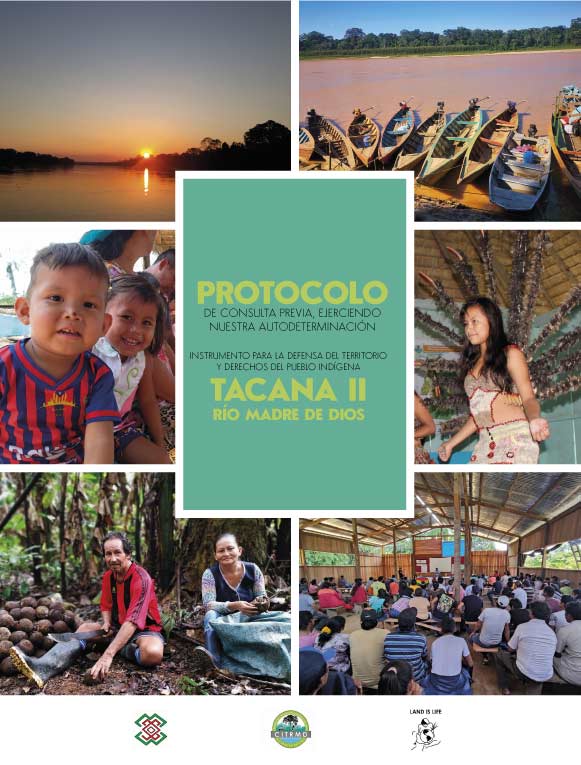
Land is Life, through its Free, Prior, and Informed Consent (FPIC) Program, provided technical and financial support to the Tacana Río Madre de Dios community in developing their FPIC Protocol. This protocol, approved by the community's Assembly, serves as a crucial framework for guiding intercultural dialogue between the Tacana people and external parties. It clearly states that failure to adhere to this protocol constitutes a violation of their rights and threatens their way of life, culture, and identity.
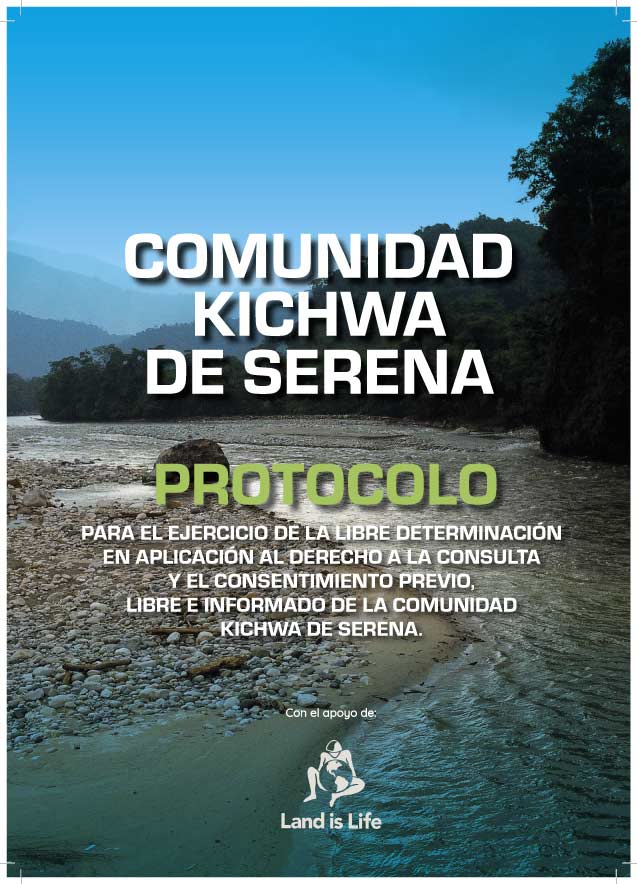
Land is Life, through its Free, Prior, and Informed Consent (FPIC) Program, provided technical and financial support to the Tacana Río Madre de Dios community in developing their FPIC Protocol. This protocol, approved by the community's Assembly, serves as a crucial framework for guiding intercultural dialogue between the Tacana people and external parties. It clearly states that failure to adhere to this protocol constitutes a violation of their rights and threatens their way of life, culture, and identity.
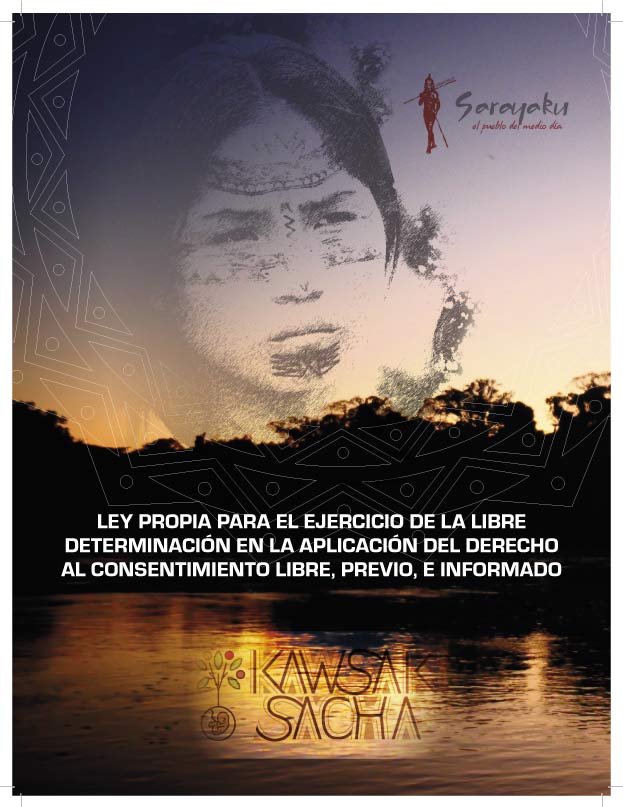
Through its Free, Prior, and Informed Consent (FPIC) Program, Land is Life provided technical and financial assistance to the Kichwa People of Sarayaku in developing their autonomous FPIC Law. This protocol serves as a vital tool for fostering democratic relations and intercultural dialogue with the State and other stakeholders concerning their territory and priorities for “Good Living” (Sumak Kawsay). Moreover, the protocol reinforces their vision of life and emphasizes the State's obligation to uphold and guarantee their human rights.
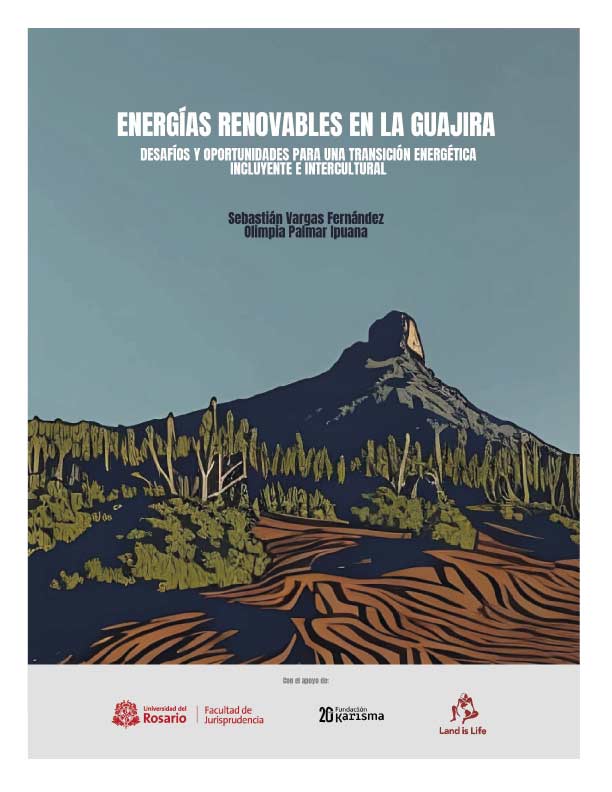
This publication explores the perspectives and reflections of the Wayuu Indigenous Peoples' communities regarding the impact of energy projects in La Guajira. It delves into the significance of the energy transition in their territories, highlighting both the challenges and opportunities for achieving a just transition that is inclusive and respectful of their cultural values.
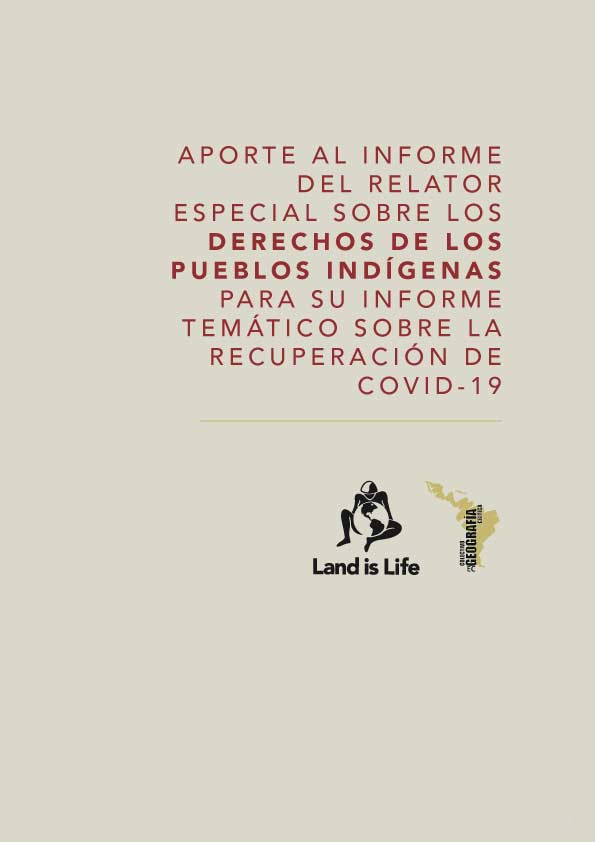
Between April 2020 and April 2021, Land is Life collaborated with the Colectivo De Geografía Crítica De Ecuador to develop an interactive map showcasing the autonomous initiatives of Indigenous Peoples in the Amazon Basin (Ecuador, Brazil, Bolivia, Colombia, Peru, and Venezuela) in response to COVID-19. As part of this initiative, a report was submitted in February 2021 to the United Nations Special Rapporteur on the Rights of Indigenous Peoples. The report provides detailed context for each country, highlights specific cases of Indigenous Peoples in highly vulnerable situations, and offers general recommendations to the States for effective recovery efforts.
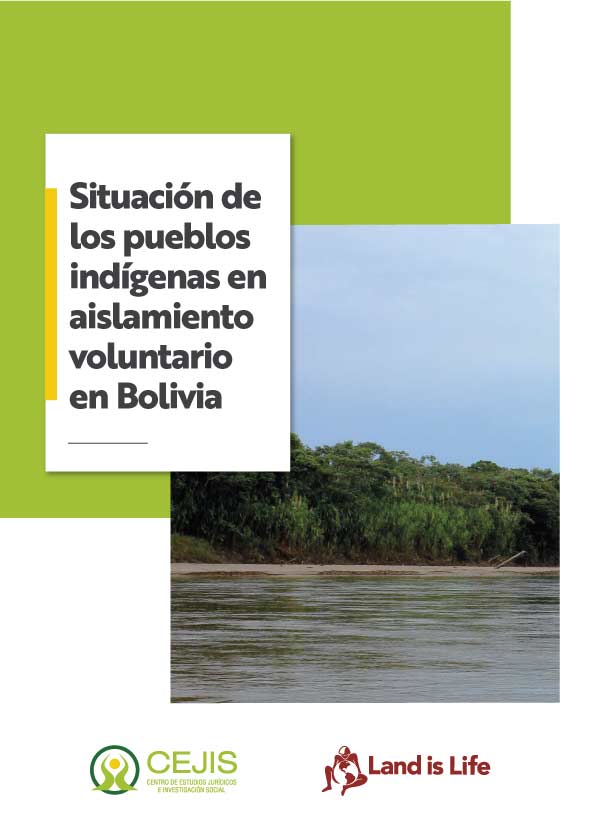
In 2021, Land is Life collaborated with the Centro de Estudios Jurídicos e Investigación Social (CEJIS) to produce a comprehensive report on the situation of Indigenous Peoples in Voluntary Isolation (PIACI) within Bolivia. The report examines the potential for recognizing the territories of these Indigenous groups and highlights the challenges they face. Following the report's development, members of our Latin America team traveled to Bolivia in September 2021 to present the findings in person. The report was shared with grassroots partners and Indigenous communities living along the Paraguay-Bolivia border, fostering dialogue and awareness about the unique challenges faced by PIACI.
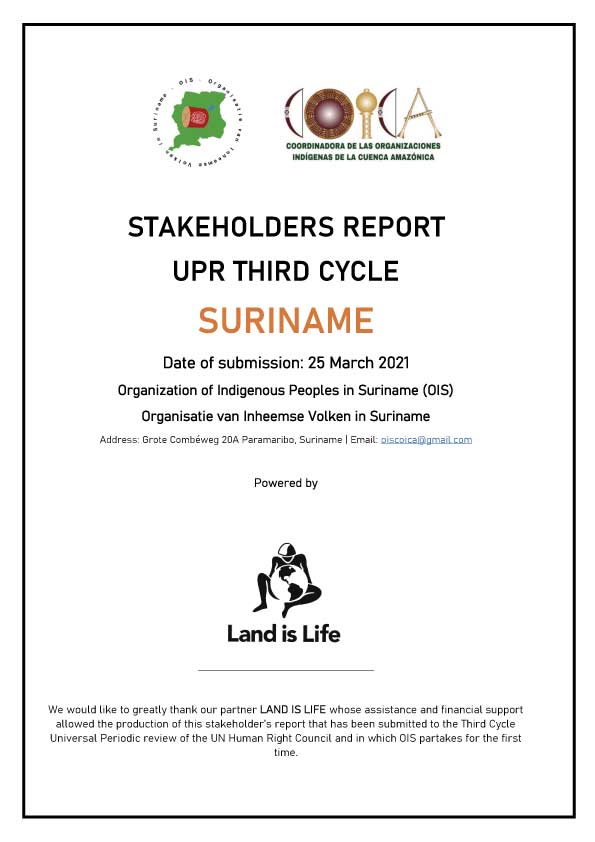
In collaboration with our partner, the Organization of Indigenous Peoples in Suriname (OIS), Land is Life produced a report in March 2021 focusing on Indigenous Peoples in Voluntary Isolation and Initial Contact (PIACI) in Suriname. This report was submitted to the Third Cycle Universal Periodic Review of the UN Human Rights Council, highlighting the unique circumstances and challenges faced by these communities and advocating for their recognition and protection under international human rights frameworks.
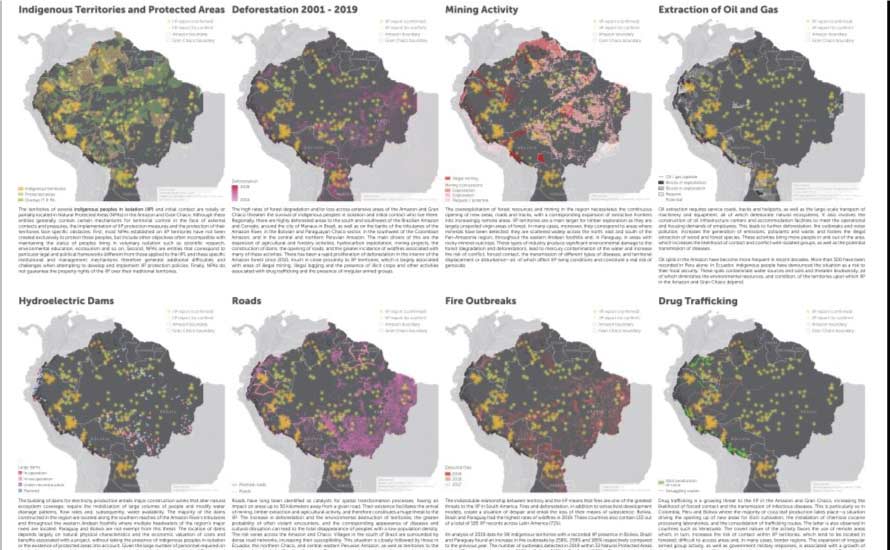
With the launch of the GTI-PIACI website, Land is Life, serving as the Secretariat, successfully completed, published, and presented eight detailed maps highlighting the territories of Indigenous Peoples in Voluntary Isolation (PIACI). These maps visualize various threats to PIACI territories, including: Protected Areas, Deforestation, Mining Activity, Oil and Gas Extraction, Hydroelectric Dams, Roads, Heat Sources from Fires, and Forest Concessions. By illustrating these threats, the maps aim to raise awareness and support efforts to protect these vulnerable Indigenous communities and their environments.
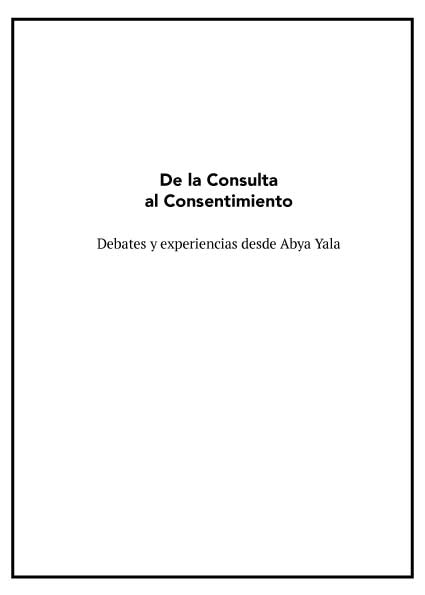
On November 12 and 13, 2020, the International Meeting on Free, Prior, and Informed Consent (FPIC) and Consultation Protocols of the Indigenous Peoples of Abya Yala took place in Quito. This book compiles a diverse array of perspectives and experiences discussed during the meeting, focusing on the FPIC debate. It aims to inspire Indigenous Peoples to develop their own tools to defend their right to self-determination, protect their territories, and preserve their traditional ways of life.
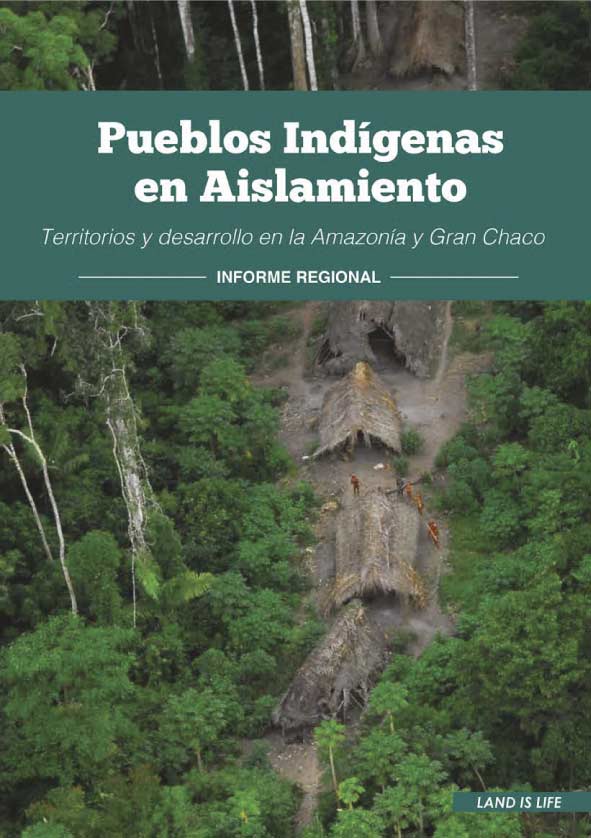
With the launch of the GTI-PIACI website, Land is Life, serving as the Secretariat, successfully completed, published, and presented eight detailed maps highlighting the territories of Indigenous Peoples in Voluntary Isolation (PIACI). These maps visualize various threats to PIACI territories, including: Protected Areas, Deforestation, Mining Activity, Oil and Gas Extraction, Hydroelectric Dams, Roads, Heat Sources from Fires, and Forest Concessions. By illustrating these threats, the maps aim to raise awareness and support efforts to protect these vulnerable Indigenous communities and their environments.
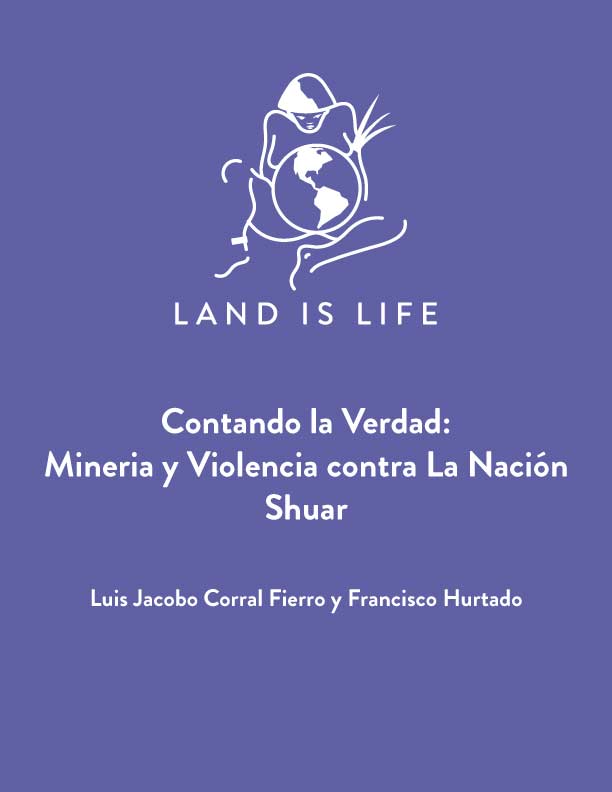
Land is Life has a long history of supporting Indigenous Peoples and allied organizations in defending their rights. This report, developed by Luis Jacobo Corral Fierro and Francisco Hurtado, provides a thorough assessment of the impacts associated with the development of a mega-mining district in the Cordillera del Cóndor, Ecuador. It examines the sociocultural, economic, territorial, and historical aspects of the conflict in Nankints and challenges the misleading narratives propagated by the government, which portrayed the Shuar people as violent, paramilitary, and terrorist. The report advocates for the demilitarization of Shuar territory and seeks reconciliation for the damages inflicted by the Ecuadorian armed forces' actions, aiming to rectify the injustices faced by the Shuar community.
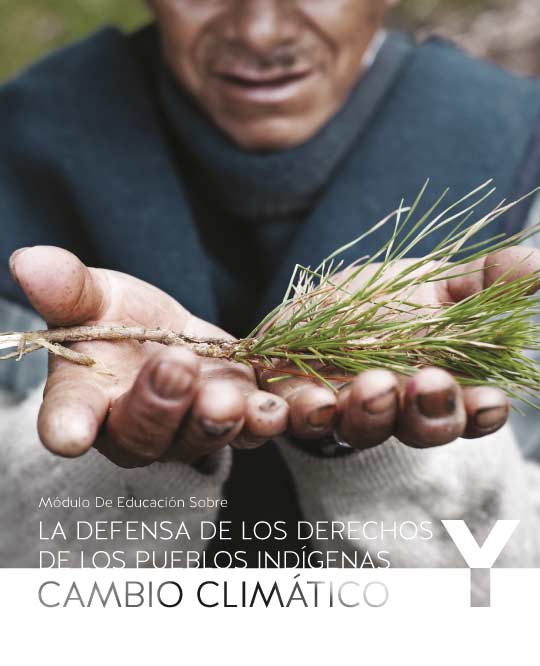
This Education Module on Indigenous Peoples and Climate Change is the result of a multi-year collaboration with the Cordillera Peoples Alliance (CPA) and the Asia Pacific Indigenous Youth Network, and is also informed by the experiences of Land is Life’s inaugural cohort of Climate Change Fellows in 2014. The module addresses the urgent need for comprehensive information and critical analysis of climate change impacts on Indigenous Peoples. It is designed to equip Indigenous communities with fundamental knowledge necessary for their effective and meaningful engagement in climate change debates, negotiations, and social movements